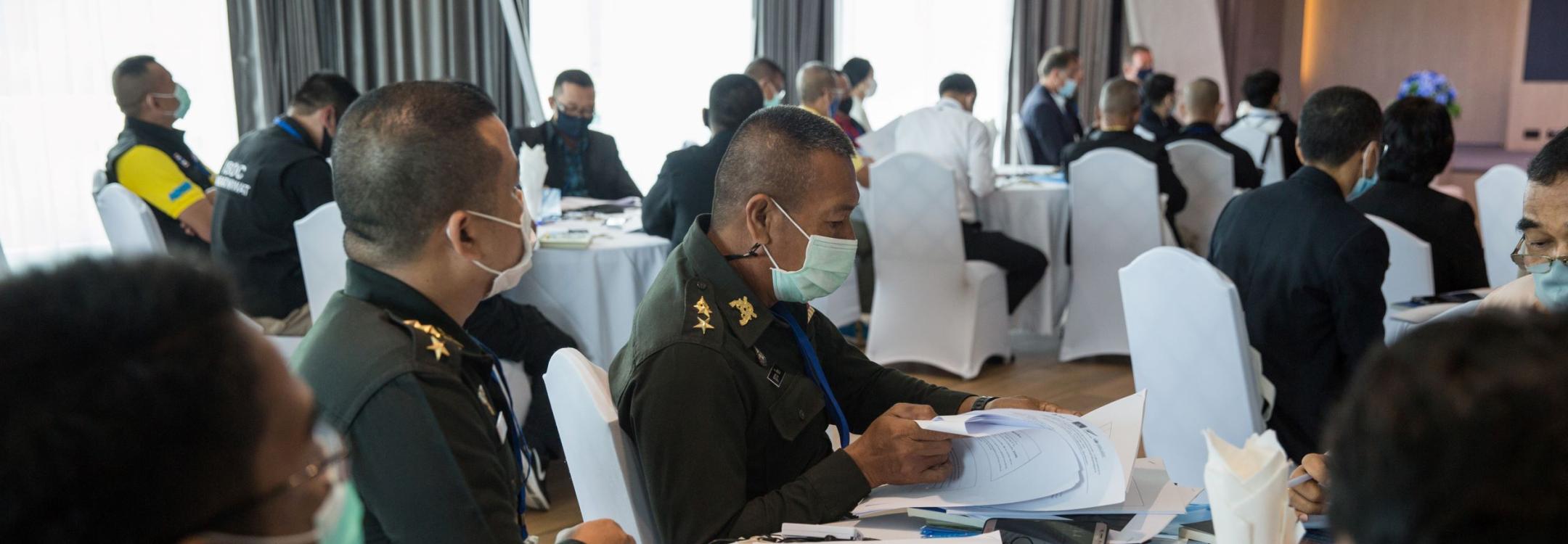
A two-day online retreat with police and law enforcement officials in Thailand has encouraged participants to discuss the challenges in their work and how effective interviewing techniques can support them when conducting investigations.
The retreat - organised by the APT and the Rights and Liberty Department (RLPD) of the Thai Ministry of Justice, in collaboration with the Cross Cultural Foundation (CrCF) - is the first step in a joint effort to develop training modules for police and other investigating officers on the Méndez Principles on Effective Interviewing and Information Gathering.
It is also a key component of the #SafeInCustody project, coordinated by the APT, CrCF, and partners in Malaysia and the Philippines, to end forced confessions and incommunicado detention in the three countries.
We know torture and ill-treatment is most likely to occur on arrest or during the first hours of custody. Implementing strong safeguards in detention, including through effective interviewing, is essential to reduce these risks and uphold the dignity of people deprived of liberty.
Held on 17-18 February 2022, the retreat brought together law enforcement officers from the Royal Thai Police (RTP), the Department of Special Investigation and Internal Security Operation Command, as well as public prosecutors, judges and correctional officers.
Mr Ruengsak Suwaree, RLPD Director General, opened the retreat by reiterating that the Ministry of Justice welcomes the adoption of the Méndez Principles and supports the APT’s efforts to develop training modules for Thai law enforcement officers.
An overview of the Méndez Principles was presented by Shazeera Zawawi, APT Senior Advisor on Research and Innovation. She emphasised that the Principles are constructive, scientific, holistic and practical in nature, and aim to support investigating officers in their efforts to conduct effective, professional investigations.
Pol.Maj.Gen. Komkrit Waisuebkao, Head of Criminal Cases within the RTP Legal and Litigation Division, expressed support for the Méndez Principles but noted that amendments to existing criminal procedure laws will be necessary to integrate the Principles in the Thai context. He also said the RTP should invest in infrastructure, such as building proper investigation rooms and appropriate recording systems, to fully implement the Principles.
Professor Krisanaphong Poothakool, a former police officer and current Professor of Criminology at Rangsit University, underscored the importance of reforming the police through decentralisation, which he argued improves efficiency and transparency in police management. He also highlighted the importance of promoting public engagement in police reform processes, sharing positive examples from Germany and Japan, which had resulted in greater public trust in the police.
The second day of the online retreat featured a series of interactive discussions on three key themes related to the development of training modules:
- Lab 1: Who are we training – setting the criteria and needs of trainees
- Lab 2: Best practice approaches and methodology for training police
- Lab 3: Framing and prioritising our learning objectives and outcomes.
Participating police officers said that human rights should be embedded across the curriculum and be adapted to specific contexts, such as investigation techniques related to cyber crime. They also suggested the modules should provide general knowledge about ethics and philosophy related to investigations and legal knowledge about police misconduct.
The #SafeInCustody project is funded by the European Union. This content is the sole responsibility of the APT and does not necessarily reflect the views of the European Union.